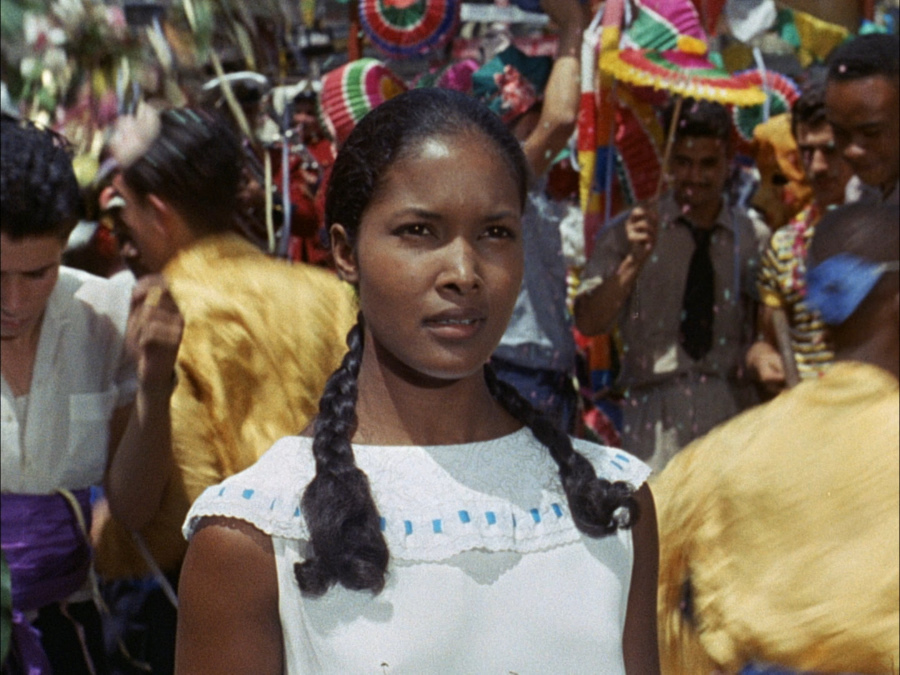Last year about this time, I was reading the liner notes to Luiz Bonfá’s “Alone in Rio” album. It is a Smithsonian recording and well-worth a listen particularly for “Manhã de Carnival.” I had forgotten that the song was introduced to the world in the movie “Black Orpheus,” and was amazed the French director Marcel Camus wanted to cut it. Bonfá pleaded to keep it and won the argument.
I remembered seeing the movie a year or two after it was made in 1959. It had won the best foreign film Oscar and was the best at Cannes. Netflix has it in its DVD catalog, and I watched it. It’s astonishing how good it is. The direction is superb and the acting just right. There were three shots in which the huge statue of Christ the Redeemer, the great icon of Rio, can be seen in the far background. Most of the favela scenes show everything in focus, which is also how “Citizen Kane” was filmed.
Orpheus was played by a handsome Brazilian soccer star Breno Mello.![Breno_Mello_(screenshot_from_Black_Orpheus)[1]](https://auslander.online/wp-content/uploads/2015/01/Breno_Mello_screenshot_from_Black_Orpheus1.jpg)
A lovely dancer from Pittsburgh, Marpessa Dawn, played Eurydice.
It is a sad story, but romantic and the incredible color and energy of the movie is outstanding.
I watched it again just last week. Edie hadn’t seen it. It holds up wonderfully more than a half century after it was made.
I wondered after seeing the movie last year what Pauline Kael thought about it. Turns out, she did not review it — before her time, I expect. But it was reviewed in the The New Yorker. It was by John McCarten. Here in its entirety is that idiot review as it appeared in the magazine’s January 2, 1960 edition:
“Black Orpheus,” a French film made in Brazil under the direction of Marcel Camus, swirls colorfully, if erratically, through the ancient tale of Orpheus and Eurydice. As you remember, Orpheus went down to Hades to rescue his beloved; in this version, with a dancer named Marpessa Dawn playing a Negro Eurydice, and a Brazilian football star named Breno Mello playing a Negro Orpheus, we have endless shots of a Rio de Janeiro Mardi Gras while the legend is enacted, and a plethora of racketing from the assembled merrymakers. But the acting is overblown, and the whole business is too disheveled to make much sense. Let’s put this down as an experiment noble in motive.
Thank you for reminding me, Steve, about this beautiful movie. It has been far too long since my last viewing!
Pauline Kael did indeed review Black Orpheus, sometime in the early 1960’s when she was married to Ed Sandberg. Together they ran a two screen movie theater in Berkeley, California, showcasing foreign films, for which she wrote pithy reviews which soon became as popular locally as the films. One comment I remember about Black Orpheus: Kael wrote that crowds would gather outside just to listen to the music pouring out of the theater doors. Why I remember, is that my husband and I, impoverished newlyweds who couldn’t afford to attend films, were among them. We went anyway. Seeing that movie, and experiencing its wondrous score, remains a favorite memory.